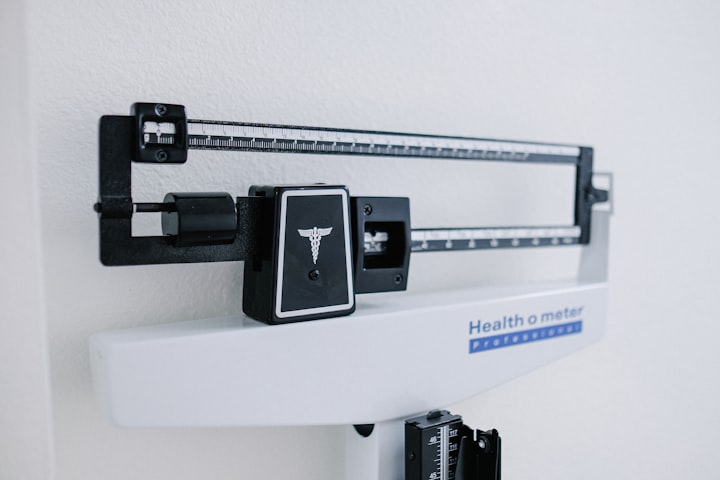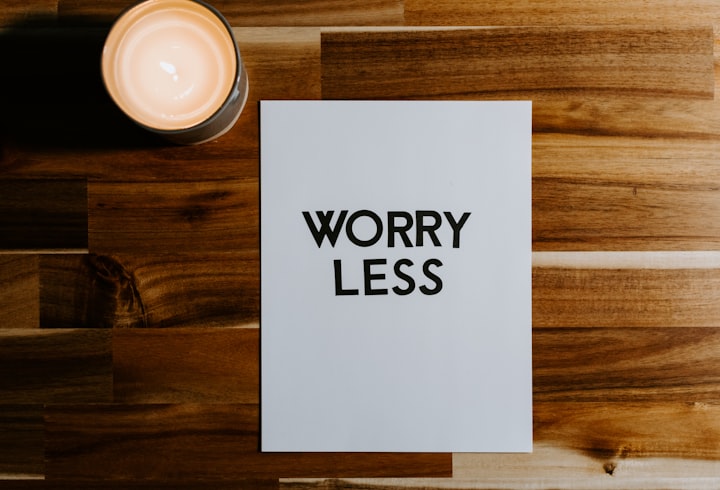Diet and Exercise is Not the Answer to Everything
American Doctors are Too Busy to Listen and Diagnose Real Problems

I have been obese most of my life. Yes, some of it is my own fault—I have always loved things like cookies and ice cream. However, almost all of the women on my dad’s side of the family are large. It’s in the genes, a theory backed by my doctor after discussions over my weight. Most of the women on my dad’s side have the shoulders of linebackers and the excess padding that often goes with a larger frame. It didn’t help that my mom is from a Mennonite family, with the traditional delicious baked goods being forced upon me by my grandmother, especially around the holiday.
I have known for years that my mental state and work situation are reflected in my diet. When I am angry or upset, I rarely eat. When I am stressed, I go for quick and easy foods and tend to eat more junk than usual. When I worked as a retail store manager, I often did not have time to eat lunch, so I often relied on snacks, coffee, and protein drinks or bars to get me through the day, none of which are healthy foods.
In the fall of 2017, my entire body was under attack from a strange illness—an illness that was never fully diagnosed. I usually refer to it as Lyme disease because I had all the symptoms: flu-like symptoms, joint pain, fatigue, and so on. I had one Lyme test that came back negative but had a doctor prescribe me the antibiotics commonly used to treat Lyme. I was put on steroids for about a week to help my system recover, including my lymph nodes and major joints. Aside from muscle damage to my right knee, resulting in pain and extreme weakness, and an increase in anxiety, the illness went away and I was able to somewhat resume my regular life.
Since that fall, I have been plagued with knee pain and the inability to use that muscle beyond walking. I cannot do squats, cannot get up if I kneel down, and recently it has progressed to sharp pain if I so much as touch that knee. I saw an orthopedic doctor who sent me to physical therapy, with which my primary care doctor agreed. Because of the cost, they scheduled me for just three sessions. I did not return after the second since I could not walk for three days. Physical therapy did two things for me: it showed me that my knee was much worse than I thought, and it increased the pain in my knee when doing everyday activities.
It isn’t that I cannot deal with the pain—it’s the inability to do everyday activities that gets to me. I can no longer do the same work I used to because my knee cannot take it, and I struggle to go up or down stairs. I am not as active as I once was, so my weight has slowly increased over these past five years. My doctor’s answer to both my weight gain and my knee pain? Diet and exercise.
Don’t get me wrong; I like my doctor. He is hesitant to prescribe medication, which suits me because I am hesitant to take it. He can be funny and is understanding of my anxiety and depression. However, a considerable part of my mental health is linked to my decrease in earning potential as a result of my knee issues. I cannot work as a store manager anymore because I cannot stand for long periods of time. I cannot do heavy lifting as it aggravates my knee, and I certainly cannot bend at the knees to lift.
The problem with the “diet and exercise” approach is that sometimes it just is not feasible. With my condition creating my depression, I sink farther away from the desire to eat healthier. I will have a good day and stick to water and healthy foods, and then I’ll wake up in pain or frustrated that I can no longer support my family and think, “I’m screwed anyway, so I might as well have Oreo cookies for dinner.” Never mind that cookies, for example, will stay fresh longer than fruit, and with such a tight budget, we cannot have food that will spoil in a couple of days.
Exercise is just a joke in my situation. I mentally struggle to get out of bed some days, and then I’m supposed to do something that I absolutely hate. I always enjoyed activities like badminton, gardening, or playing in the park with my dog, but I struggle due to my knee. I maybe could one day and then have to sit for the next three days, which is what usually happens when I have work to do in my garden: I get it done and then spend the next few days sitting because of the pain in my knee.
I used to get all my exercise from my job—carrying cases of wine, unloading freight, walking over the recommended ten thousand steps in a day. Now I am lucky if I get half of that. Walking outside is not fun for me and seems like a tremendously boring task assigned by a gym teacher. Plus it causes me pain to walk on uneven surfaces, such as the park behind my house, and I certainly do not want to get Lyme disease again.
The problem in America is that doctors are so constricted that they are often not much help at all. My doctor has a time limit with each patient, dictated to him by the “integrated health care system” that oversees our area. Even within that time limit, his answers are always the same: diet and exercise.
Most people with mental health issues will agree that “diet and exercise” is not good advice. You cannot cure anxiety or depression with either, only dull them a little, if at all. My garden was always good for my mental health, but now it causes me pain: physical knee pain from the work involved and mental pain because I cannot do as much as I could in the past. I cannot be there for my plants like I used to be.
Or perhaps “diet and exercise” will worsen your situation, as it sometimes does with me. You feel guilty that you aren’t doing more, and you start to spiral. Or you are tired and know that once you get out of bed, you should exercise in addition to the regular functions of your day. Sometimes I need a nap after just feeding my cats—it isn’t laziness or a poor diet; it’s mental health.
Then there is the knee. I have suspected that I suffer from some sort of arthritis in that knee. I initially tried knee-strengthening exercises in the hopes of getting back to normal. You don’t need a doctor to hand you a paper with strengthening exercises when the internet has plenty of information at your fingertips. Nothing I tried worked.
When my knee first started giving me trouble, my boss had the nerve to mention weight, as did my former primary care physician. It makes logical sense, except that my knee was fine on Monday of that week, and I could not get up from a kneeling position by Thursday. There was no massive weight change over that time, so obviously weight was not an issue. Soon after, I had other joints that started to ache and swell. That was when the concern about Lyme disease came up.
For me, the worst part with the “diet and exercise” advice is that it sounds like a health nut’s way of saying, “I don’t know.” That’s fine if my doctor doesn’t know why my knee aches every day, but tell me that instead of pushing an idea that clearly isn’t working. All it does is tell me that my knee concerns go unnoticed and are unimportant; my quality of life does not matter, which does not help my mental health. Without a good outlook on my future, “diet and exercise” will always take a back seat to sleeping and crying softly in the dark on my bad days or writing to relieve stress on my good days.
About the Creator
Jen Sullivan
I am a gamer, a geek, a writer, an entrepreneur, and a gardener, among many things. I have a lot of knowledge and opinions to share with the world, along with creations from my chaotic mind.






Comments
There are no comments for this story
Be the first to respond and start the conversation.